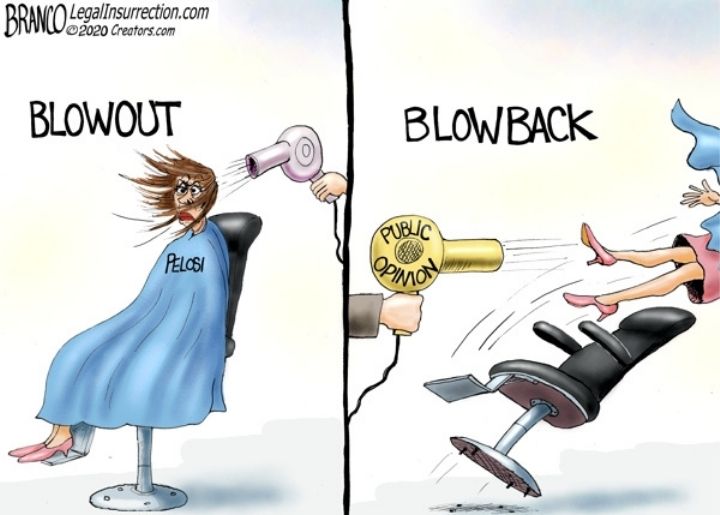Re: Let the truth be known
Executive Branch Investigations
(U) The Committee found that certain FBI procedures and actions in response to the
Russian threat to the 2016 elections were flawed, in particular its interactions with the DNC
about the hacking operation and its treatment of the set of memos referred to as the Steele
Dossier.
(U) The Committee found the FBI lacked a formal or considered process for escalating
its warnings about the DNC hack within the organization of the DNC. Additionally, the FBI's
"victim-driven" response paradigm, whereby hacked entities and organizations are treated as
victims and the FBI relies on their cooperation to access and navigate targeted computer systems,
hindered FBI' s ability to investigate the cyberattack with appropriate urgency. The Committee
understands that the FBI operates with limited resources and currently follows this victim-driven \
xiii
COMMITTEE SENSITIVE-RUSSIA INVESTIGATION ONLY
COMMITTEE SENSITIVE - RUSSIA INVESTIGATION ONLY
model when responding to cyber threats. However, the Committee found that the FBI could
have, and should have, escalated its communications to the DNC much sooner than it did, but
also that the DNC interlocutors did not assign appropriate weight to the FBI's warnings. To this
point, the Committee found that communication on both sides was inadequate, further confusing
an already complex situation.
(U) Regarding the Steele Dossier, FBI gave Steele's allegations unjustified credence,
based on an incomplete understanding of Steele's past reporting record. FBI used the Dossier in
a FISA application and renewals and advocated for it to be included in the ICA before taking the
necessary steps to validate assumptions about Steele's credibility. Further, FBI did not
effectively adjust its approach to Steele's reporting once one of Steele's subsources provided
information that raised serious concerns about the source descriptions in the Steele Dossier. The
Corhinittee further found that Steele's reporting lacked rigor and transparency about the quality
of the sourcing.
(U) The Russian attack on the 2016 U.S. elections presented a new, quickly-evolving,
and complex set of circumstances for the FBI. However, the Committee found that FBI overly
adhered to the letter of its procedures in dealings with the DNC, rather than recognizing the gap
between those procedures and effective the pursuit ofits mission, and did not follow its
procedures closely enough in the handling of Christopher Steele. During both of these matters,
FBI did not quickly identify the problem and adjust course when it became clear its actions were
ineffective.
Executive Branch Investigations
(U) The Committee found that certain FBI procedures and actions in response to the
Russian threat to the 2016 elections were flawed, in particular its interactions with the DNC
about the hacking operation and its treatment of the set of memos referred to as the Steele
Dossier.
(U) The Committee found the FBI lacked a formal or considered process for escalating
its warnings about the DNC hack within the organization of the DNC. Additionally, the FBI's
"victim-driven" response paradigm, whereby hacked entities and organizations are treated as
victims and the FBI relies on their cooperation to access and navigate targeted computer systems,
hindered FBI' s ability to investigate the cyberattack with appropriate urgency. The Committee
understands that the FBI operates with limited resources and currently follows this victim-driven \
xiii
COMMITTEE SENSITIVE-RUSSIA INVESTIGATION ONLY
COMMITTEE SENSITIVE - RUSSIA INVESTIGATION ONLY
model when responding to cyber threats. However, the Committee found that the FBI could
have, and should have, escalated its communications to the DNC much sooner than it did, but
also that the DNC interlocutors did not assign appropriate weight to the FBI's warnings. To this
point, the Committee found that communication on both sides was inadequate, further confusing
an already complex situation.
(U) Regarding the Steele Dossier, FBI gave Steele's allegations unjustified credence,
based on an incomplete understanding of Steele's past reporting record. FBI used the Dossier in
a FISA application and renewals and advocated for it to be included in the ICA before taking the
necessary steps to validate assumptions about Steele's credibility. Further, FBI did not
effectively adjust its approach to Steele's reporting once one of Steele's subsources provided
information that raised serious concerns about the source descriptions in the Steele Dossier. The
Corhinittee further found that Steele's reporting lacked rigor and transparency about the quality
of the sourcing.
(U) The Russian attack on the 2016 U.S. elections presented a new, quickly-evolving,
and complex set of circumstances for the FBI. However, the Committee found that FBI overly
adhered to the letter of its procedures in dealings with the DNC, rather than recognizing the gap
between those procedures and effective the pursuit ofits mission, and did not follow its
procedures closely enough in the handling of Christopher Steele. During both of these matters,
FBI did not quickly identify the problem and adjust course when it became clear its actions were
ineffective.


Comment